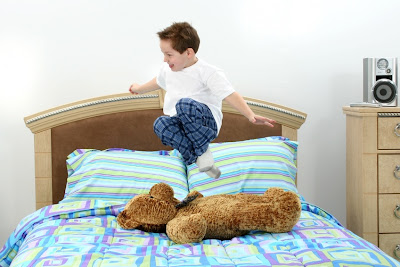 Attention Deficit Hyperactivity Disorder (ADHD) has gained a lot of prominence in the recent years. Though a lot of research has been conducted in the recent past, helping the medical practitioners to gain a better understanding on ADHD including ADHD treatment, an easy and accurate identification of this condition is still not possible. ADHD is commonly found in children and is characterized by hyperactivity, short attention span and impulsivity. This makes the diagnosis even more difficult since children have high energy levels and hence are extra active by nature and are known to have a short attention span. So how does one distinguish between a ‘child-like’ behavior and ADHD?
Attention Deficit Hyperactivity Disorder (ADHD) has gained a lot of prominence in the recent years. Though a lot of research has been conducted in the recent past, helping the medical practitioners to gain a better understanding on ADHD including ADHD treatment, an easy and accurate identification of this condition is still not possible. ADHD is commonly found in children and is characterized by hyperactivity, short attention span and impulsivity. This makes the diagnosis even more difficult since children have high energy levels and hence are extra active by nature and are known to have a short attention span. So how does one distinguish between a ‘child-like’ behavior and ADHD?Over time, the experts have laid out a few guidelines which can help in eliminating other possible reasons and hence diagnose ADHD. For children, there is a checklist available that a parent can use to assess if the child needs the help of an expert. This checklist contains some symptoms that need to be monitored. However, it is important to note that this checklist is applicable to children who are above six years of age. It is difficult to diagnose ADHD in children who are of age five years and below. You may use this checklist though it may not be complete in itself:
Symptoms for Hyperactive Type ADHD
* Talking excessively
* Difficulty in playing quietly
* Fidgets and squirms in the seat
* Runs about or climbs a lot a inappropriate times
* Leaves the classroom when expected to be seated
Symptoms for Impulsive Type ADHD
* Has a problem when waiting for the turn
* Often interrupts or intrudes on others
* Blurts out the answer even before the question has been completed
Symptoms for Short Attention Span Type ADHD
* Makes careless mistakes and does not pay attention to details
* Does not listen when spoken to directly
* Has a problem with organizing tasks and activities
* Gets distracted easily
* Does not follow through on instructions and fails to finish
* schoolwork, chores, or duties in the workplace
* Loses things and is forgetful in daily activities
* Does not follow instructions and fails to finish tasks
* Has short attention span and avoids tasks that require sustained mental effort
Before concluding that your child might have ADHD and needs expert help, it is important to assess the behavior of your child over a period of time. Your child should exhibit these symptoms over a period of time, which should be at least six months and under different situations. And if your child is actually diagnosed with ADHD, you need not lose heart. There are many scientifically proven methodologies to help your child overcome this condition. These range from pharmaceutical drugs, natural medicines for ADHD, counseling and even natural remedies for ADHD treatment.
-------------
ADHD is a common disorder to children, there are many schools for them which can help reduce the symptoms.
Source




